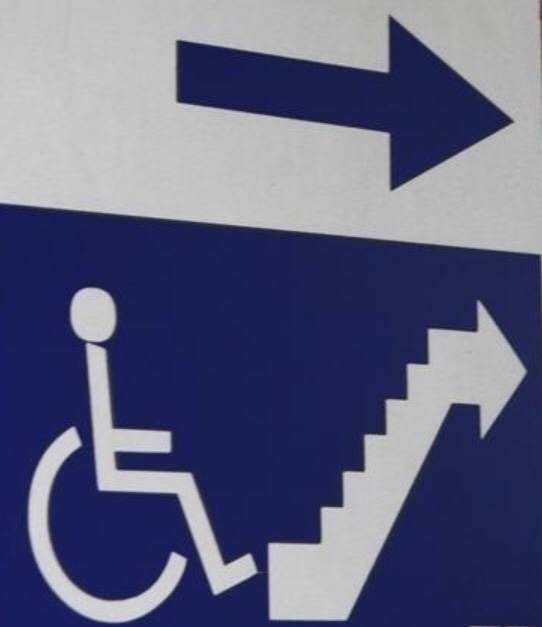Our world was not created for those with disabilities. In recent years, vast improvements have been made, but realistically we as a society, still have a long way to go.
The “Social Model of Disability” proposes that it is our environment that makes us disabled and when it comes to accessibility, I can’t help but agree. People with disabilities are faced with accessibility conundrums daily and these are often very unpredictable.
I believe access to our environment could and should be made easier because not only are we faced with an ageing population who will benefit from these adjustments too, but no one is guaranteed excellent health forever.
I understand for many people, it might be hard to grasp the challenges faced by those with disabilities, because they haven’t seen these first hand or haven’t had any reason to consider these type of scenarios before. However, I wonder, how can we raise awareness of accessibility, when the very lack of accessibility, prevents us from getting out there and raising awareness in the first place?
Similarly, when someone sees us struggling to contend with our environment, this could only feed into the harmful view that our difference means we are to be pitied or we are lesser.
I can only speak from the perspective of a wheelchair user, but consider this:
- Trying to use the accessible fire exit but it has a step down to the ramp.
- Trying to negotiate the accessible bathroom packed with boxes, high chairs and tools.
- Trying to “fit in” as a new student but only being able to sit in the very front row of a lecture hall.
- Trying to dodge the sandwich-boards on the pavement, cars parked on drop-down kerb or cars parked on the striped boxes of an accessible car parking space.
- Trying to book an accessible hotel room, only to be told it can’t be guaranteed until check in. Or trying to book an accessible family room for that matter.
- Trying to find a standard sized table in amongst high tables and booths.
- Trying to move around the many clothing rails on a shop floor or trying to speed-dress because the accessible changing room is occupied by someone who isn’t a wheelchair user.
- Trying to get public transport when you know the accessible space might not be available, even with pre-booked assistance. Or when that space is occupied by a pram or a bike.
- Trying to go to a gig but you have to wait until the accessible line opens and then you can only purchase a maximum of 2 tickets.
- Trying to hold onto your things whilst opening the door at the same time because there is no push button access or worse still, “only one step”.
Does this sound familiar to you? I’m aware the above list might sound like a list of complaints, but this article is not meant to be like that at all. Instead, I just want to paint a picture of our daily realities when accessibility is poor. Everybody has challenges in life but when these challenges can be made easier, should we not be trying to do this?
Often, these situations whilst frustrating are undeniably funny as you think “what were they thinking when they designed it this way” or “what next?” (The interesting choice of pedal bins in accessible bathrooms for instance…). But other times, sadly they make me feel useless and embarrassed.
Don’t get wrong on many, if not all of the above occasions, I have been able to rely on the kindness of a stranger to help me out. However, what if we didn’t have to? What if true accessibility was the norm? What if accessibility wasn’t something that was considered but instead it was the starting point?
Current reasonable adjustments, while helpful are often underpinned by financial constraints and they tend to adopt a “one size fits all” approach, but what if you don’t fit the typical mould?
I believe, poor accessibility feeds isolation and dehumanisation. True accessibility offers inclusion, dignity and respect. There’s no denying that getting accessibility “right” can make someone’s life extraordinarily better.
Picture a world filled with ramps, changing places toilets, audio guides, sign language visuals and ear defenders. It looks good, doesn’t it?


